Description
“The Forged Coupon” is a story about how a small act can lead to serious consequences. The protagonist, deciding to use a forged coupon, hoped to deceive the store and gain an advantage, but this act led to a chain of fatal events.
The novella’s plot portrays a chain of dishonest and cruel acts committed by people from various social classes who have forgotten about morality and conscience, succumbing to the pressure of unconscious evil. Among them was Michael Vvedensky, a gymnasium teacher of the Law of God, who is described as follows:
“The Law of God teacher Vvedensky was a widower, an academic, and a very proud man. Last year, he met Smokovnikov’s father (a student who forged and distributed the coupon — an analogue of a banknote — author’s note) at a social gathering. During a conversation about faith, Smokovnikov completely defeated him on all points and ridiculed him, so Vvedensky decided to pay special attention to the son. Finding the same indifference to the Law of God in the son as in his unbelieving father, he began to persecute him and failed him on the exam. Upon learning from Marya Vasilievna about young Smokovnikov’s act, Vvedensky couldn’t help but feel pleased, finding in this case confirmation of his assumptions about the immorality of people deprived of the guidance of the church. He decided to use this case, as he tried to convince himself, to demonstrate the danger that threatens all those who deviate from the church — but deep down, it was to take revenge on the proud and self-confident atheist” (L. N. Tolstoy, PSS vol. 14, p. 167). The teacher of the Law of God humiliated the boy in front of the class not for his actual guilt related to the forged coupon, but out of a petty, malicious feeling of revenge.
Then, a new confrontation occurred between him and Mitya Smokovnikov’s father, in which the latter told the priest: “Stop pretending. Don’t I know that you don’t believe in anything, neither trifles nor death?” — “I consider it unworthy of myself to speak with a gentleman like you,” Father Michael said, offended by Smokovnikov’s last words, especially because he knew they were true. He had completed a full course at the theological academy and therefore had long since ceased to believe in what he professed and preached, believing only that all people should force themselves to believe what he forced himself to believe.” Subsequently, this priest, for his zeal, received a promotion and made a significant career in the church.
In the last years of his life, Leo Tolstoy was actively engaged in the search for God. Rejecting the theory and practice of the Russian Orthodox Church as false, he tried to discern a yearning for genuine faith in ordinary people. To revive in people’s souls a true faith in Christ — this he saw as his spiritual mission in the last years of his life. In the novella “The Forged Coupon,” this aspiration, connected with the idea of non-resistance to evil, plays an important role. The novella was conceived by the writer as an artistic embodiment of the idea of neutralizing evil through non-resistance. The first part of the work depicts the growth of evil, which spreads outwards in circles, like “elastic spheres.” In the second part, the circles converge again; good gradually absorbs evil and triumphs in the moral enlightenments of the common folk — Stepan Pelageyushkin, Makhin, Vasily, and others. They repent of their committed crimes and cruelties and begin to selflessly perform good deeds.
Browse the table of contents, check the quotes, read the first chapter, find out which famous book it is similar to, and buy “The Forged Coupon” on Amazon directly from our page.
Read the Full Text Online: The Forged Coupon by Leo Tolstoy
I
Fyodor Mikhailovich Smokovnikov, chairman of the Treasury Chamber, a man of unimpeachable honesty, of which he was proud, and a gloomily liberal man, not only free-thinking but hating all manifestations of religiosity, which he considered a relic of superstitions, returned from the Chamber in the worst possible mood. The governor had sent him an extremely stupid paper, from which one could infer a reprimand implying that Fyodor Mikhailovich had acted dishonestly. Fyodor Mikhailovich became very embittered and immediately wrote a sharp and biting reply.
At home, everything seemed to be done to spite Fyodor Mikhailovich.
It was five minutes to five. He thought dinner would be served immediately, but it wasn’t ready yet. Fyodor Mikhailovich slammed the door and went into his room. Someone knocked on the door. “What the devil is it now,” he thought, and shouted:
“Who’s there?”
A fifth-grade gymnasium student, a fifteen-year-old boy, Fyodor Mikhailovich’s son, entered the room.
“What do you want?”
“It’s the first of the month today.”
“What? Money?”
It was customary for the father to give his son three rubles for entertainment on the first of every month. Fyodor Mikhailovich frowned, took out his wallet, searched, and pulled out a 2 ½ ruble coupon, then got a piece of silver and counted out another fifty kopecks. The son remained silent and didn’t take the money.
“Papa, please, give me an advance.”
“What?”
“I wouldn’t ask, but I borrowed on my word of honor, I promised. As an honest person, I can’t… I need three more rubles, honestly, I won’t ask again… not that I won’t ask, but simply… please, Papa.”
“You’ve been told…”
“But Papa, it’s just this once…”
“You get three rubles for allowance, and it’s still not enough. When I was your age, I didn’t even get fifty kopecks.”
“Now all my friends get more. Petrov, Ivanitsky get fifty rubles.”
“And I’ll tell you that if you act like this, you’ll be a swindler. I’ve said it.”
“But what have you said? You’ll never understand my situation, I’ll have to be a scoundrel. It’s easy for you.”
“Get out, you good-for-nothing. Get out.”
Fyodor Mikhailovich jumped up and lunged at his son.
“Get out. You need a good thrashing.”
The son was scared and embittered, but more embittered than scared, and, bowing his head, quickly walked towards the door. Fyodor Mikhailovich didn’t want to hit him, but he was pleased with his anger and continued to shout abusive words for a long time, seeing his son off.
When the maid came and said that dinner was ready, Fyodor Mikhailovich got up.
“Finally,” he said. “I don’t even feel like eating anymore.”
And, scowling, he went to dinner.
At the table, his wife spoke to him, but he grumbled such a short, angry reply that she fell silent. The son also didn’t lift his eyes from his plate and remained silent. They ate in silence and silently got up and went their separate ways.
After dinner, the gymnasium student returned to his room, took the coupon and change from his pocket and threw them on the table, then took off his uniform and put on his jacket. At first, the gymnasium student picked up a tattered Latin grammar, then locked the door with the hook, swept the money from the table into a drawer, took cigarette tubes from the drawer, filled one, plugged it with cotton, and began to smoke.
He sat over his grammar and notebooks for about two hours, understanding nothing, then got up and began to pace the room, stomping his heels, remembering everything that had happened with his father. All of his father’s abusive words, especially his angry face, came back to him as if he were hearing and seeing him right now. “Good-for-nothing. Needs a thrashing.” And the more he remembered, the angrier he became at his father. He recalled his father telling him: “I see what you’ll turn out to be – a swindler. Just you wait.” – “And you will be a swindler if you continue like this. It’s easy for him. He’s forgotten what it was like to be young. Well, what crime have I committed? I just went to the theater, didn’t have money, borrowed from Petya Grushetsky. What’s wrong with that? Someone else would feel sorry, ask questions, but he just curses and thinks about himself. When he doesn’t have something, it’s a yell throughout the whole house, but I’m a swindler. No, even though he’s my father, I don’t love him. I don’t know if everyone is like this, but I don’t love him.”
The maid knocked on the door. She brought a note.
“They said an answer is absolutely required.”
The note read: “This is the third time I’ve asked you to return the six rubles you borrowed from me, but you’re evading. Honest people don’t act like this. Please send it immediately with this messenger. I desperately need it myself. Can’t you really get it?
Your, depending on whether you return it or not, despising or respecting comrade Grushetsky.”
“Just think. What a pig. Can’t wait. I’ll try again.”
Mitya went to his mother. This was his last hope. His mother was kind and couldn’t refuse, and she might have helped him, but today she was worried about the illness of his youngest brother, two-year-old Petya. She got angry at Mitya for coming and making noise, and immediately refused him.
He grumbled something under his breath and walked out the door. She felt sorry for her son and called him back.
“Wait, Mitya,” she said. “I don’t have it now, but I’ll get it tomorrow.”
But Mitya was still seething with anger at his father.
“Why would I need it tomorrow when I need it today? Just so you know, I’m going to my friend’s.”
He left, slamming the door.
“Nothing else to do, he’ll show me where to pawn the watch,” he thought, feeling the watch in his pocket.
Mitya took the coupon and change from the table, put on his coat, and went to Makhin’s.
II
Makhin was a gymnasium student with a mustache. He gambled, knew women, and always had money. He lived with his aunt. Mitya knew that Makhin was a bad sort, but when he was with him, he involuntarily submitted to him. Makhin was home and getting ready for the theater; his small, dirty room smelled of scented soap and cologne.
“This, brother, is the last resort,” Makhin said when Mitya told him his troubles, showed him the coupon and the fifty kopecks, and said he needed nine rubles. “You could pawn your watch, or even better,” Makhin said, winking one eye.
“Better how?”
“Oh, very simple.” Makhin took the coupon. “Put a one in front of the 2 rubles 50, and it’ll be 12 rubles 50.”
“But do they even have those?”
“Of course, on thousand-ruble notes. I passed one myself.”
“No, that can’t be?”
“So, should I forge it?” Makhin said, picking up a pen and smoothing the coupon with the finger of his left hand.
“But that’s wrong.”
“Oh, what nonsense.”
“Exactly,” Mitya thought, and his father’s curses came back to him: “swindler.” “Now I’ll be a swindler.” He looked at Makhin’s face. Makhin looked back at him, smiling calmly.
“So, should I forge it?”
“Go ahead.”
Makhin carefully drew a one.
“Well, now let’s go to the shop. Right here on the corner: photographic supplies. By the way, I need a frame for this person.”
He took out a photograph of a large-eyed girl with enormous hair and a magnificent bust.
“Isn’t she a darling? Huh?”
“Yes, yes. How…”
“Very simple. Let’s go.”
Makhin got dressed, and they left together.
III
The bell at the entrance of the photography shop jingled. The gymnasium students entered, looking around the empty shop with its shelves of supplies and display cases on the counters. From the back room, an unattractive woman with a kind face emerged and, standing behind the counter, asked what they needed.
“A nice little frame, madam.”
“What price?” the lady asked, quickly and deftly sorting through frames of various styles with her mittened hands and swollen finger joints. “These are fifty kopecks, and these are more expensive. And this one is very pretty, a new style, one ruble twenty.”
“Well, let’s take that one. Can’t you give us a discount? Take a ruble.”
“We don’t bargain,” the lady said with dignity.
“Oh, suit yourself,” Makhin said, placing the coupon on the counter. “Give us the frame and the change, and quickly. We don’t want to be late for the theater.”
“You’ll still make it,” the lady said and began examining the coupon with nearsighted eyes.
“It’ll look lovely in this frame. Eh?” Makhin said, turning to Mitya.
“Don’t you have any other money?” the saleswoman asked.
“That’s the trouble, we don’t. My father gave it to me; it needs to be changed.”
“But don’t you have one ruble twenty?”
“We have fifty kopecks. What’s wrong? Are you afraid we’re trying to cheat you with fake money?”
“No, not at all.”
“Then give it back. We’ll get it changed.”
“So, how much do you need?”
“Well, about eleven and something.”
The saleswoman clicked on the abacus, unlocked a small desk, took out a ten-ruble banknote, and, rummaging through the change, gathered six more twenty-kopeck pieces and two five-kopeck pieces.
“Please wrap it,” Makhin said, unhurriedly taking the money.
“Right away.”
The saleswoman wrapped it and tied it with string.
Mitya didn’t breathe a sigh of relief until the entrance bell jingled behind them and they were out on the street.
“Here’s ten rubles for you, and give me these. I’ll pay you back.”
And Makhin went to the theater, while Mitya went to Grushetsky’s and settled his debt.
IV
An hour after the gymnasium students left, the shop owner came home and began counting the day’s earnings.
“Oh, you clumsy fool! What a dolt you are!” he shouted at his wife, seeing the coupon and immediately noticing the forgery. “Why do you even accept coupons?”
“But you yourself, Zhenya, accepted them in front of me, specifically twelve-ruble ones,” said his wife, embarrassed, distressed, and on the verge of tears. “I don’t even know how they fooled me,” she said, “the gymnasium students. A handsome young man, seemed so well-mannered.”
“A well-mannered fool!” her husband continued to scold, counting the cash. “When I take a coupon, I know and see what’s written on it. But you, I suppose, were just admiring the gymnasium students’ faces in your old age.”
His wife couldn’t take it anymore and became angry herself.
“A real man! Only good at judging others, but losing fifty-four rubles gambling – that’s nothing.”
“I’m different.”
“I don’t want to talk to you,” his wife said and went to her room, recalling how her family hadn’t wanted her to marry him, considering her husband far beneath their station, and how she alone had insisted on the marriage. She remembered her deceased child, her husband’s indifference to that loss, and hated her husband so much that she thought about how good it would be if he died. But, having thought this, she became frightened by her feelings and hurried to get dressed and leave. When her husband returned to the apartment, his wife was already gone. Without waiting for him, she had dressed and gone alone to a French tutor she knew, who had invited them for an evening gathering.
V
At the French tutor’s, a Russian Pole, there was a formal tea with sweet pastries, and afterward, they sat down at several tables to play whist.
The photograph shop owner’s wife sat with the host, an officer, and an old, deaf lady in a wig, the widow of a music shop owner, who was a great enthusiast and skilled player. The cards were falling favorably for the photograph shop owner’s wife. Twice she bid for a grand slam. Next to her was a plate with grapes and a pear, and she felt cheerful.
“Why isn’t Evgeny Mikhailovich coming?” the hostess from another table asked. “We signed him up as the fifth.”
“He’s probably engrossed in his accounts,” said Evgeny Mikhailovich’s wife. “Today are the calculations for provisions, for firewood.” And, remembering the scene with her husband, she frowned, and her mittened hands trembled with anger at him.
“Speak of the devil,” the host said, turning to the entering Evgeny Mikhailovich. “What kept you?”
“Oh, various matters,” Evgeny Mikhailovich replied in a cheerful voice, rubbing his hands. And, to his wife’s surprise, he walked up to her and said:
“You know, I passed that coupon.”
“Really?”
“Yes, to the peasant for firewood.”
And Evgeny Mikhailovich told everyone with great indignation—his wife added details to his story—how the unscrupulous gymnasium students had cheated his wife.
“Well then, to business,” he said, sitting down at the table when it was his turn, and shuffling the cards.

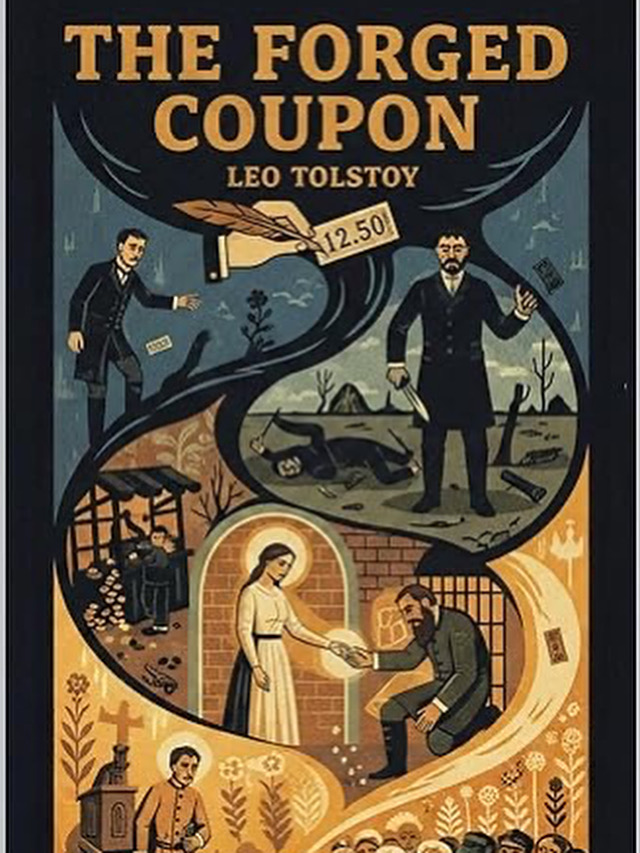
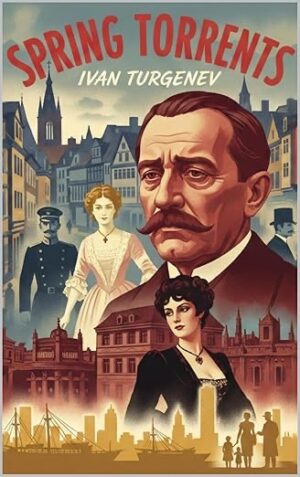
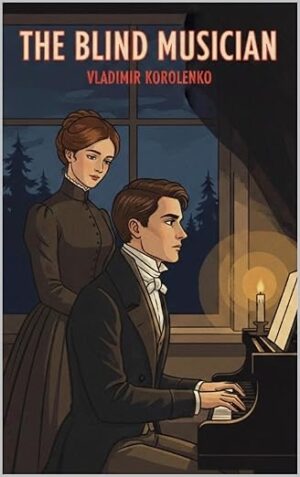
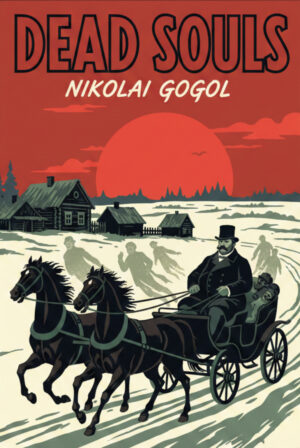
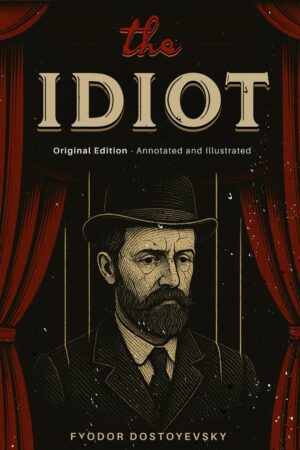
Reviews
There are no reviews yet.